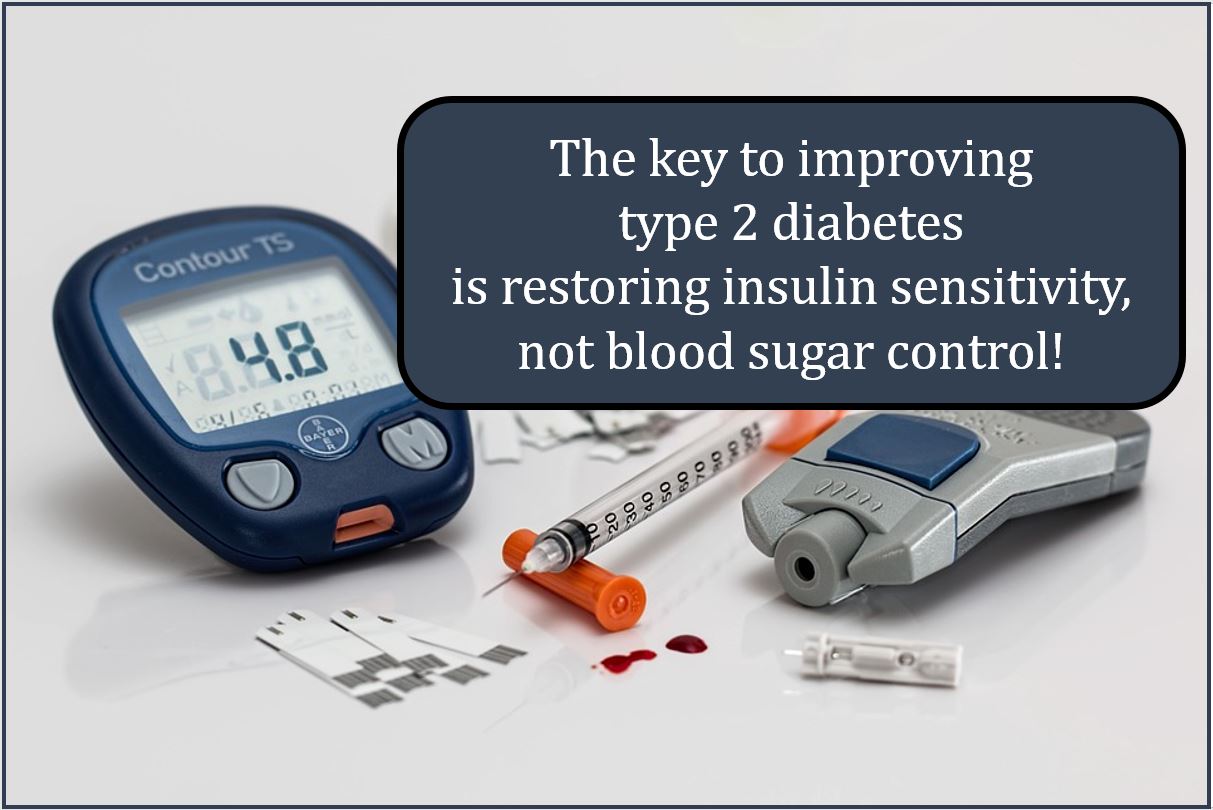
Controlling blood sugar is not enough!
A recently published article confirms what many other articles have shown:
For type 2 diabetics, controlling blood sugar does not reduce the risk of complications.
A pull-quote from the conclusion in the abstract:
“Discordance exists between the research evidence and academic and clinical policy statements about the value of tight glycemic control to reduce micro- and macrovascular complications.”
In other words, what type 2 diabetic patients are being told about controlling their blood sugar and it reducing their risk for kidney disorders, vision problems or pain-related issues, is not consistent with the research.
In fact…
“This evidence reported no significant impact of tight glycemic control on the risk of dialysis/transplantation/renal death, blindness or neuropathy. …however, most published statements and guidelines unequivocally endorsed” the benefits.
So we have a conundrum…
Not really. There are at least three issues here
One off blood tests indicate nothing
When we visit the doctor and have a fasting blood sugar test done, it indicates almost nothing regarding blood sugar control. A step in the right direction would be to monitor blood sugar control with regular A1c tests.
Wholly invested in controlling blood sugar
Everything we do regarding treatment of type 2 diabetes and/or prediabetes (a terrible term) is geared to control blood sugar – we’ve built the entire industry around it. Whether it be the medication, a fasting blood sugar test, or “official statements” from AHA, CDC, NIH or the ADA, it’s all about controlling blood sugar and reducing risk.
This leads to zero positive impact on the cause of type 2 diabetes – insulin resistance.
Maybe type 2 diabetes really is an insidious condition
It is quite possible that insulin resistance and blood sugar dysregulation are more complicated than we currently think and/or know.
It is amusing, telling and disturbing when a complicated concept is taken to a point where it is too simple – simple beyond reason.
But…if the risk for these complications in type 2 diabetics is higher, it means those without type 2 diabetes have a lower risk. So it plays some role – maybe we don’t really understand if the risk is causative or associative. But the risk is there.
So what should you do?
First, understand and come to grips with the fact that artificially controlling your blood sugar (in other words, through medication) is not enough. In spite of what your healthcare professional(s) tell you, the evidence simply does not support it.
Second, take steps to improve insulin sensitivity, which will decrease insulin resistance. Some of these steps include the right diet, proper exercise and ensuring enough sleep (I recently hosted a live webinar on these very topics. If you’d like to view it, enter your name and email address below).
If you can improve insulin sensitivity, you make progress on naturally controlling blood sugar – as opposed to artificially. The more consistent you are, the more your insulin sensitivity improves. The more it improves, the more your body starts acting like someone who doesn’t have type 2 diabetes.
In the long run, and as noted above, this reduces your risk.
View the Webinar
Enter your name and email address below to view the webinar on improving insulin sensitivity mentioned above.



Yes you are right Controlling blood sugar is not enough. If you want to control your diabetes you must other things as well like food control, meal plan, exercise putting Medical alert bracelets etc.
We need to control everything if we are at high risk in having diabetes or when we have it already. We need to be mindful always. This podcast http://learntruehealth.com/prediabetes/ teaches similar information and you might love to listen to it.